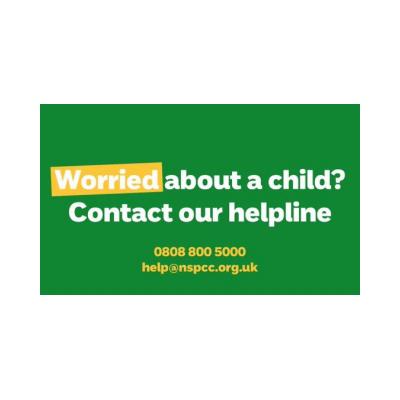NSPCC research highlights need for early intervention
Fewer children in Northern Ireland, and across the UK, are dying as a result of homicide and assault, but disturbing levels of child abuse remain - according to a new report from the NSPCC.
According to How Safe are our Children (www.nspcc.org.uk/howsafe), a UK wide analysis of child protection and welfare statistics, while child deaths as a result of maltreatment have fallen, for every child in the UK subject to a protection plan or on child protection registers another eight have suffered maltreatment. The charity estimates it would cost up to half a billion pounds every year to provide protection plans to just a quarter of these hidden children.
The children’s charity, which runs local services to support vulnerable children and their families across Northern Ireland, is calling for continued investment from the Northern Ireland Executive into structures and measures aimed at stopping child abuse and maltreatment before it starts.
Neil Anderson, head of NSPCC’s services in Northern Ireland, said: “There is a strong evidence base for the development of family support hubs in Northern Ireland, underscoring a clear need for investment in early intervention.
“The report also highlights how England, Scotland, Wales and Northern Ireland each measure child protection data, and makes suggestions on how to strengthen each. In Northern Ireland we certainly feel it would be helpful to further categorise Children in Need referrals into those that had an element of abuse or neglect and which, without intervention, could potentially be envisaged as progressing to child protection registration.
“Suicide rates are clearly a matter of concern, and can be the result of a combination of factors including mental health issues, family problems, abuse and neglect. We need to ensure that help is out there for, and known to, vulnerable young people.
“While Northern Ireland has the highest child protection registration figures in the UK, it is a positive step forward that we are witnessing a decline in the number of children and young people being on the register for more than two years.
“This report also outlines some of the other emerging challenges, including trafficking and internet safety, implicit in child protection today. The clear message is that we cannot be complacent, and that child abuse is more prevalent – and more devastating – than many of us are prepared to recognise.”
With 2,127 children on the child protection register in Northern Ireland (At 31 March 2012), and 35,516 referrals, relating to 28,496 children, having been made to children’s social services during 2011/12, Neil continued:
“Abuse and maltreatment can have a devastating effect on a child’s mental and physical health. Without support to overcome their early experiences, a child can be scarred for life. When we discover abuse we must do everything we can to protect children from further harm and help them recover. But child protection services are already working in overdrive, so we must prevent abuse from happening to so many children in the first place. By identifying and supporting vulnerable children and their families early we can stop abuse before it starts and set a new course to give children a brighter, happier future.
“We are working closely with statutory services and other partners in Northern Ireland to develop services that are based on some of the best models of child protection in the world.”
The ChildLine Schools Service is just one of the services which the NSPCC offers in Northern Ireland to prevent children experiencing abuse or neglect. Launched in November the service plans to visit every school by 2016 to help every child understand abuse and how they can stay safe.
Using assemblies and workshops delivered to year 5 and 6 pupils by trained volunteers, the service is designed to encourage children to recognise situations where they may need help and to let them know where they can get support if they need it. Sessions are sensitively tailored to ensure topics are covered in a way that children can understand and have been approved as suitable for nine to 11-year-olds by child protection specialists.
Shaun Friel, ChildLine Schools Service manager for Northern Ireland, said: “Research tells us that child abuse can remain hidden for many years with children suffering in silence and other children continuing to be at risk from perpetrators. Many children fail to recognise their experience as abusive and often do not know where they can go for help.
“We believe that by sensitively teaching children about how to recognise abuse and where to get help we can help stop child abuse before it starts and give children a safer, brighter future.”
All of the NSPCC’s services are provided free both to the families we work with and to our partner organisations, such as Health and Social Care Trusts and the PSNI, thanks to the generosity of the public who support us. By supporting our work, the public can help us continue to develop services to stop child abuse before it starts. By sharing the learning from our services we want to help transform the UK’s approach to child protection and keep every child safe.
How Safe are our Children – launched by the charity today - is the first ever national child abuse tracker. Its new report presents 19 indicators of child protection in England, Wales, Scotland and Northern Ireland. The NSPCC will now monitor progress against the indicators on a regular basis.
To find out more about the services the NSPCC offers to local children and families or how you can support the charity’s work visit www.nspcc.org.uk/northernireland.
To donate £4 to help the NSPCC continue to develop services to keep children safe from harm text NIChild to 70744*.
View our How Safe are our Children video here - http://www.youtube.com/watch?v=XBp3QYZXG0Y – and access the full report at www.nspcc.org.uk/howsafe.

